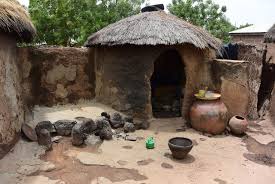Ghana’s fight against poverty has been a longstanding concern, with various social intervention policies aimed at alleviating the plight of the vulnerable. However, concerns have been raised about the effectiveness of these policies. Despite efforts to decrease significantly Ghana’s poverty rate over the past two decades, nearly 3 million Ghanaians still live below the poverty line.
According to the Ghana Statistical Service’s 2023 report, the poverty rate in Ghana stands at 23.4%, with 2.8 million people living on less than $1.90 a day in rural Ghana, and 214,000 extremely poor people located in urban areas. The report also highlights the disparities in poverty rates across the country, with the Northern, Upper East, and Upper West regions being the poorest.
To address this, successive governments have implemented policies aimed at reducing poverty and improving the lives of Ghanaians. Some of these policies include the Livelihood Empowerment Against Poverty (LEAP) program, the National Health Insurance Scheme, the school feeding program, and recently the Free Senior High School policy.
The LEAP program, for instance, provides a monthly stipend to extremely poor households. Mma Fusheina, a widow with seven children in Kpilo, a community in the Kumbungu District of the Northern region, is one of the beneficiaries of the LEAP program. She explains how the program have been helpful to her and the family.
“LEAP has been a game-changer for me,” she said. “I receive a monthly stipend, which helps me take care of my children’s education and healthcare. I’ve also started a small trading business through the support from LEAP.”
But despite success stories like Mma Fusheina’s, challenges in implementing the program still persist. Funding constraints, bureaucratic bottlenecks, and inadequate targeting of beneficiaries hinder the effectiveness of these policies.
According to Professor Michael Ayamga, a Development Economist, “The LEAP program has been helpful, but there are still challenges”. “The program needs to be scaled up, and the targeting of beneficiaries needs to be improved.”
As programs such as LEAP is improving the lives of many poor in Ghana, other factors such as climate change, unemployment continue to make many poor increasing poverty rate in the country.
In 2024 for instance, climate change has exacerbated poverty in the northern areas. Majority of people in the north depend on rain-fed agriculture for their livelihoods. The dry spell which occurred between April and June 2024 has consumed all crops sending a signal of hunger and worsen poverty.
Madam Cecelia, a farmer at Gumo in the Kumbungu District of the Northern region, in an interview with Zaa news narrates how she lost her entire crop to the recent dry spell.
“I’m worried about how I will take care of my family,” she said. “The dry spell has destroyed all my crops, and I don’t know how I will recover.”
The situation of Madam Cecilia and many other farmers who lost their farms due to the dry spell is a manifestation of the gaps in policies that are geared toward poverty reduction.
Experts argue that a more holistic approach is needed to address poverty’s root causes. According to Professor Ayamga, Ghana’s social intervention policies are crucial, but governments must prioritize sustainable economic growth, infrastructure development, and education.
“There’s a need to create jobs and stimulate local economies to reduce poverty,” he said
As the country goes to the December polls, the manifestos of the major political parties, NDC and NPP, are not clear on specific policies that target poverty reduction, especially in rural areas. One that can be considered is the NDC’s free medical care in CHPS compounds through to polyclinics. However, experts argue that more needs to be done to address the root causes of poverty.
As Ghana continues its battle against poverty, the government needs to reassess and strengthen its social intervention policies. The stories of Madam Cecelia and Mma Fusheina serve as reminders of the human faces behind the statistics. It is imperative that the government prioritizes the needs of the poor and vulnerable, and implements policies that address the root causes of poverty.
Source: Jonas Biawurbi/zaaradio.com


